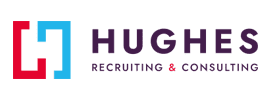Have you ever considered which skills are most sought-after today in your industry? If you want to stand out among other applicants or develop new skills to help your career progress, it’s essential to learn the necessary competencies you need for the role. However, developing your skills not only improves your competencies but can also introduce new opportunities for your career.
Regardless of your chosen career path, here are 17 in-demand skills – both technical and soft – you can develop to increase your value as an employee in this competitive market.
Read more: Make a Lasting Impression: How to Excel in Your First 30 Days at a New Job
Top 7 Technical Skills You Need to Learn
Starting with technical expertise, these in-demand skills will help you navigate today’s evolving market. As the world rapidly adopts technology in various work functions, it’s critical to fully understand these tools. Staying updated on the latest advancements will help augment your responsibilities or open new career opportunities.
1. Digital Literacy
Most organizations today are integrating the latest programs. This includes:
- artificial intelligence
- machine learning
- automation
- cloud computing
- cybersecurity
- data analysis
- the Internet of Things
While these technologies may not become relevant for industrial and clerical roles, staying updated on the latest tools and software is vital in this technologically advanced and fast-growing world.
2. Project Management
Project management tools offer a wide range of functionalities for teams. Maximizing them can help maintain transparency, improve accountability, and streamline workflows. Here are a few relevant functions of project management tools:
- Collaborate, communicate, and give feedback.
- Track progress and allocate resources.
- Organize and prioritize tasks.
- Create milestones and maintain deadlines.
- Share documents and knowledge.
3. Data Entry and Inventory Management
Proficiency in tools like Excel, Sheets, and other database management systems can add greatly to your skills. Furthermore, you can learn advanced inventory management systems like SAP, Oracle, and NetSuite to handle larger, more complex inventory systems.
4. Microsoft Office Suite Proficiency
Microsoft Office offers various tools professionals can use to improve their daily operations. This includes:
- Microsoft Word – For documentation and formatting.
- Excel – To perform data analysis, spreadsheets, and databases.
- PowerPoint – To create presentations.
- Outlook – For email management and scheduling.
- OneNote – Management for important notes, minutes, and planning.
5. Vendor and Supply Chain Management
This is mainly to track supply chain activities like orders and delivery schedules. These tools are necessary for procurement teams to efficiently perform their duties and maintain seamless operations. Knowledge of advanced systems like SAP Ariba, Oracle Netsuite, and Zoho Inventory can offer real-time tracking, vendor relationship management, and cost optimization.
6. Communication and Collaboration Platforms
Tools like Slack, Microsoft Teams, or Zoom can provide clear communication with your team members. These platforms also have video conferencing to ensure smooth collaboration.
7. CRM Systems
For clerical roles involving customer interaction, familiarity with Customer Relationship Management (CRM) tools like Salesforce, HubSpot, or Zoho CRM can be beneficial. These tools help manage customer interactions, track inquiries, and improve overall service quality.
10 Key Soft Skills You Need to Develop
To complement your technical expertise, developing strong soft skills is equally important. These 10 in-demand skills enhance your ability to work effectively with others, adapt to challenges, and excel in any role you take.
1. Project Management
Alongside the tools, learn how to manage projects efficiently to streamline workflows. By combining this with organizational and problem-solving skills, you can effectively strategize and prioritize your tasks, ensuring you meet deadlines and stay within the project parameters.
A strong understanding of these skills will give you a competitive edge and open more opportunities for career advancement.
2. Adaptability
Adapting to new technologies, concepts, practices, or environments can be a valuable skill. Employers recognize candidates who have:
- Flexible perspectives
- Willingness to learn new tools
- Ability to integrate different methods into their work
Achieving your career goals often requires an open mindset to changes, especially with technology, industry practices, and societal norms.
3. Communication
Communication is one of the most in-demand job skills to develop. Aside from conveying your ideas clearly, being a good conversationalist also helps maintain healthy relationships in the workplace.
Furthermore, it can open opportunities for leadership roles where communication and collaboration are highly valued.
Focusing on your communication skills also helps develop public speaking, customer service, and conveying technical concepts to non-technical people. Mastering communication can help transform how you connect with others. You can turn ideas into inspiration and conversations into opportunities for growth and collaboration.
4. Creativity
Innovation will always be in style.
Few people focus on creativity, especially in clerical and industrial roles that follow established protocols. However, creative thinking sparks fresh ideas. This can help you contribute new ideas, improve processes, or venture into new product pipelines. Hone your creativity to develop innovative solutions to address common challenges in your workplace.
5. Leadership
The quality of leadership should not be reserved for higher positions. You can influence, inspire, and motivate those around you in your own way. This will help foster a cohesive team and effectively achieve the organization’s objectives.
Be the person your teammates look up to. Set an example through your actions. By cultivating your leadership skills, you can improve your career trajectory and become a valuable member of the organization.
6. Problem-Solving
Instead of focusing on challenges and how they affect your work, look for ways to solve them. Finding new ways to approach a challenge helps improve your analytical thinking.
If you can analyze complex situations and identify a problem’s root cause, you can recommend practical solutions and become an essential contributor to the team.
7. Self-Awareness
Being self-aware requires high emotional intelligence. This means knowing what you want, including your passions, goals, and commitments. Reflecting on these areas will help you stay focused on your goals and align your aspirations with the company’s core values.
On the other hand, being self-aware also boosts external awareness. This helps you develop empathy for others and better understand their unique experiences. By being self-aware, you can help foster a collaborative and thriving work culture.
Related article: Why Aren’t You Getting Hired? 14 Factors That Hold You Back
8. Time Management
Managing your time wisely is key to performing your tasks efficiently. Prioritize your tasks according to their urgency and importance. Avoid procrastination. Limit your distractions to ensure productive work.
Effective time management:
- Helps you meet deadlines
- Reduces stress
- Enhances your overall productivity
- Helps you maintain focus
Avoid feeling overwhelmed by breaking larger tasks into smaller, manageable steps and setting realistic goals.
Related article: Debunking the Long–hours Myth: 5 Reasons Why They Don’t Mean More Productivity
9. Customer Relations
Customer service is a great skill to develop as it helps improve your interpersonal skills. Whether in a client-facing role or not, meeting customers’ needs is essential for a business. If you’re looking for a client relations role, ensure that you develop the ability to assist customers with their queries and resolve their issues with empathy and patience.
10. Attention to Detail
Critical thinking shows dedication to your work by ensuring accurate and reliable results. You can apply this in documentation, record-keeping, and quality control. Start with your current responsibilities. Ensure that everything you provide is made with quality.
How Can You Develop These In-Demand Skills?
There’s no shortcut to developing yourself and your competencies. Recognize specific areas for improvement and remain committed to developing your skills.
Here are some guides that will help you hone these in-demand skills and attract potential employers.
1. Set clear and achievable goals.
Have you heard of SMART goals? You can apply these to qualities in high demand in the workplace.
- Be specific with what you want to achieve.
- Measure your progress through quantitative data.
- Make sure that your objectives are realistic and achievable.
- Focus on skills relevant to your responsibilities and career aspirations.
- Set a time frame to keep yourself motivated and focused.
2. Check out learning platforms.
There are many ways to learn new tools and programs. YouTube and community websites like Reddit and Slack offer free access to learning new tools. If you want a more structured way of learning, you can visit platforms like Coursera, LinkedIn Learning, Udemy, or Skillshare.
3. Seek reliable and inspiring mentors.
Find encouragement and insights from someone you can trust. This could be an office acquaintance, a former boss or professor, or a veteran you meet online. Finding a mentor to guide you, support your growth, and offer constructive feedback in the workplace and industry can be a great way to develop your skills.
4. Focus on your growth and consistency.
Everyone has flaws. Even leaders make mistakes. So, don’t be hard on yourself. Keep developing your skills until they become natural to you. Apply what you learned from different sources to your responsibilities and real-life situations.
Related article: Tips for Your Passive Job Search
Are you ready to find work with Hughes?
Developing key skills and competencies can help boost your career progression. Here at Hughes Recruiting and Consulting, we focus on matching talented individuals like yourself with employers dedicated to their workforce’s well-being and advancement. We offer various roles in clerical, industrial, and professional settings. Contact us today to learn more about our job opportunities.

























